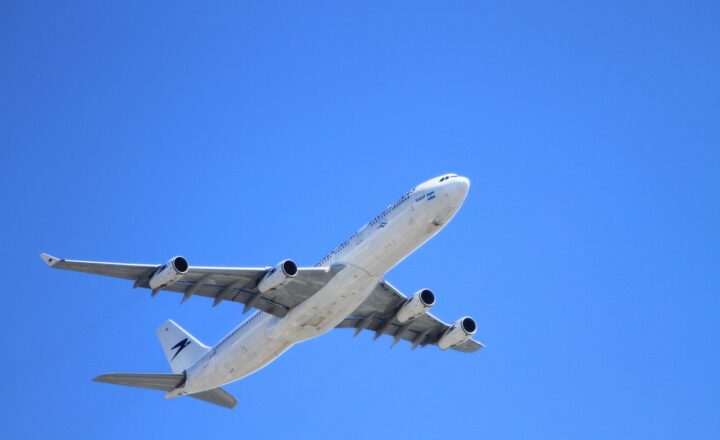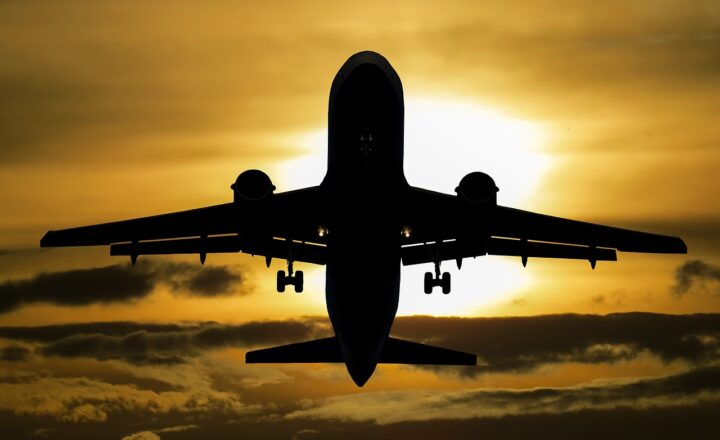Jet Set Dreams: How Air Travel Has Transformed Our Lives and The Future of Flying
November 17, 2024

Air travel has long been synonymous with freedom, adventure, and opportunity. Since the dawn of commercial aviation, the airplane has transformed the way we connect with the world around us. As technology advances and the industry evolves, air travel continues to shape our lives in myriad ways. This comprehensive article explores the significant impact of air travel on society, the advancements that have taken place, and what the future holds for the aviation industry.
1. The Birth of Commercial Aviation
Air travel began on a small scale in the early 1900s. The first commercial flight took place on January 1, 1914, when a Benoist XIV biplane flew from St. Petersburg to Tampa, Florida. A single fare was only $10, and the flight lasted approximately 23 minutes. This historic event marked the beginning of an industry that would evolve into a massive global network.
With advancements in technology and the introduction of larger, more efficient aircraft, the 1950s and 1960s saw the golden age of air travel. Airlines began to offer jet services, reducing flight times and increasing comfort. The Boeing 707, introduced in 1958, made intercontinental travel accessible to the everyday traveler.
2. The Impact of Air Travel on Society
The significance of air travel goes beyond mere transportation. It has reshaped the economies, cultures, and social dynamics of nations around the globe. Here are a few ways in which air travel has left an indelible mark on society:
- Globalization: Air travel has accelerated globalization by making it easier for people, goods, and services to move across borders. This has resulted in increased cultural exchanges, international trade, and collaboration between countries.
- Tourism Growth: The rise of affordable air travel has led to a significant boom in the tourism industry. Destinations once deemed unreachable are now just a few hours away, allowing millions of people to explore diverse cultures and landscapes each year.
- Family Connections: Air travel enables families spread across different cities or countries to reunite more easily, strengthening familial bonds and creating lasting memories together.
- Job Creation: The aviation industry has created millions of jobs worldwide, both directly in airlines and airports and indirectly in industries like tourism, hospitality, and logistics.
As air travel continues to evolve, its influence on society and the economy will only grow stronger.
3. Environmental Considerations in Air Travel
With the undeniable benefits of air travel comes the pressing issue of its environmental impact. Aircraft emissions contribute to climate change, and noise pollution affects communities around airports. In response to these challenges, the aviation industry is working towards more sustainable practices:
- Innovative Aircraft Design: Manufacturers like Boeing and Airbus are developing new aircraft that are more fuel-efficient and produce fewer emissions. The Boeing 787 Dreamliner, for example, uses advanced materials and systems to minimize fuel consumption.
- Biofuels and Alternative Energy Sources: Airlines are exploring sustainable aviation fuels made from renewable resources, which can significantly lower emissions compared to traditional fossil fuels.
- Carbon Offsetting Programs: Many airlines now offer passengers the option to offset their carbon footprint by investing in environmental projects, promoting responsibility in travel choices.
The goal is to make aviation as environmentally friendly as possible without sacrificing the benefits it brings.
4. Technological Advancements in Aviation
Air travel has seen remarkable technological advancements over the years. These developments have not only improved the efficiency of airlines but also enhanced the safety and comfort of passengers:
- Automation and AI: Modern aircraft are equipped with advanced autopilot systems and AI technology that assist pilots in navigating safely and efficiently, reducing the risk of human error.
- In-flight Entertainment and Connectivity: Passengers can now enjoy a range of entertainment options and stay connected through Wi-Fi access while in the air, transforming the way we experience flying.
- Enhanced Safety Measures: With the implementation of advanced radar and aircraft monitoring systems, as well as improved training protocols, safety in air travel has reached unprecedented levels.
These innovations have made air travel more accessible and enjoyable than ever before.
5. The Future of Air Travel
As we look to the future, air travel is poised for transformative changes that promise to reshape our flying experiences:
- Electric Aircraft: The shift toward electric propulsion systems is underway, which could dramatically reduce emissions and operating costs while also minimizing noise pollution in urban areas.
- Urban Air Mobility (UAM): Concepts like eVTOL (electric Vertical Takeoff and Landing) vehicles are being developed to alleviate traffic issues by enabling aerial ridesharing services in urban environments.
- Hyperloop & Supersonic Travel: Innovations in ground transportation and the return of supersonic travel could revolutionize the way we travel long distances, potentially making cross-country flights quicker and more efficient.
Each of these developments highlights the potential for air travel to become even more integrated into our daily lives, providing faster, greener, and more convenient travel experiences.
Conclusion
The journey of air travel has been extraordinary, starting from the first commercial flight to today’s advanced aviation technology. Air travel has transformed not only the way we connect with each other but also the global economy, communities, and our own experiences of the world. As the industry progresses, we can expect even greater innovations that will ensure the skies remain open to exploration and connection. No matter where we are headed, air travel is not just a means of getting from point A to point B; it has become an essential part of who we are and how we live our lives.
Whether it’s for business or pleasure, the desire to travel and explore new horizons remains strong, making the future of flying as bright as ever.







